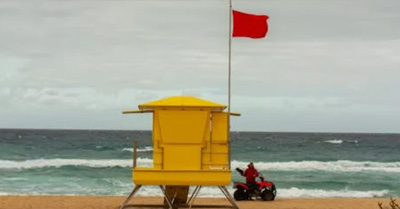Lesson 14. Verbs and Prepositions (Basic, A Level):
die, post, save, search, suffer, wish
Navigate This Page
Note. This lesson has examples using the present and past tenses.
Back to the list
/ˈdaɪ/ • die, die from, die of
All living things die at some point.
People die of illnesses or medical conditions such as cancer, a heart attack, alcoholism, and so on.
People die from external or indirect causes such as injuries suffered in an accident, a bad fall, and so on.
Sometimes it is difficult for people to know whether to use “from” or “of” because they do not understand medical conditions. In some situations, “die from” and “die of” are used interchangeably. If you use either preposition, people will still understand you.
Examples: die from
- They took the man to the hospital right after the car accident, but he died from his injuries.
- Many people die from smoking-related illnesses.
- She died from complications after the surgery.
Examples: die of
- The old man died of a heart attack.
- Sadly, too many people die of cancer.
- If people do not treat their diabetes, they can die of it.
/ˈpoʊst/ • post, post to
When you put information on a website, you are posting it so everyone can see it.
You post information or pictures to a website or social media account.
Examples: post / post to
- Mary posts a video every day. She just posted one video to YouTube.
- That’s a great photo of you. Are you going to post it? You should post it to Instagram.

Brian Ramirez | Pexels
/ˈseɪv/ • save, save for
Doctors often save people’s lives. Without their help, these people could have died.
You save people from other people or from things. You can also save someone from doing something, which means you stop something bad from happening.
Examples: save / save from
- A stranger saved us! He saved us from being attacked by a dog.
- John saved me from making me a terrible mistake.
- The lifeguard saved the child from drowning in the ocean.

Jan van der Wolf | Pexels
/ˈsɚtʃ/ • search, search for
When you search, you try to find something. Searching involves a systematic and complete effort.
You can search something (a book, the internet) for something (information, an answer, a word).
Examples: search, search for
- The police searched the town for three days. They were searching for the criminal.
- I’m searching for an old friend on Facebook.
- I need to search the internet for information on this topic.

Caio | Pexels
/ˈsəf ər, ˈsʌf ər/ • suffer, suffer from
When you are badly or painfully affected by negative situations (disease, pain, sad feelings), you suffer.
People suffer from certain health problems very suddenly, for example, they suffer a heart attack or a stroke.
When people suffer from health problems that last a long time, you say they suffer them. For example, they suffer from allergies, pain, heart disease, diabetes, or cancer.
People can also suffer from bad situations or events. For example, people suffer from hunger (not having enough to eat), poverty (being poor), the heat or the cold (the very hot or cold weather), and so on.
Examples: suffer
- The old man suffered a heart attack, but he did not die of it.
- How terrible! John suffered a stroke last week.
Examples: suffer from
- Sadly, many people around the world still suffer from hunger.
- Mary suffers from bad headaches almost every day.
- Some young children suffer from allergies to peanuts.
/ˈwɪʃ/ • wish, wish for
You make a wish or wish to do something. For example, you can say, “I wish to buy a house next year.”
When you make a wish, you wish for something.
Examples: wish
- The teacher wished his students a good summer vacation.
- I wish you a Merry Christmas, everyone!
- — Do you know the answer?
Sorry, I wish I knew the answer. (but I don’t)
Examples: wish for
- The little boy wished for a new bicycle for his birthday.
- I wish for good results on the exam.
- Parents always wish for a good life for their children.
Notes on “wish” and “hope”
Wish
You wish to do or wish for things that are difficult, unlikely, or impossible.
Wishing also means that you think of something impossible or unreal and make it possible or real in your mind.

Katerina Holmes | Pexels
- I wish for peace for everyone.
- I wish for good health.
- If you wish to finish school next year, you must take these four courses.
You also wish that something were different, or perhaps you regret a past or present situation, so you wish it were different. You can even wish something had not happened (even though you know it did happen).
The idea is that think of the unreal, and you imagine it as real in your mind.
- It’s raining now. → I wish it were not raining now.
- I speak one language. → I wish I spoke more languages.
- It won’t snow today. → I wish it would snow today.
You also use “wish” when in greetings.
- I wish you a merry Christmas.
- I wish you a happy birthday.
- I wish you all the best.
Hope
When you hope for something, it is possible to happen, so you want it to happen in the best way. You are being positive.
- I hope it does not rain tomorrow.
- We hope you pass your course.
- I hope you enjoy your birthday.
Assess Your Learning
Practice 1. Fill in the blanks using the correct prepositions after the verbs in this lesson.
Practice 2. Complete sentences using the verbs and prepositions in this lesson.
Congratulations on completing this lesson!

Thanks to our supporters!
This material has been made possible by supporters like you. Learn how you can support us.
Thank you for Supporting Snap Language
Snap Language supporters make the creation of these materials possible.
Learn how you can support our work, get perks, and help us continue creating high-quality materials.
You can support us by simply white-listing this site.